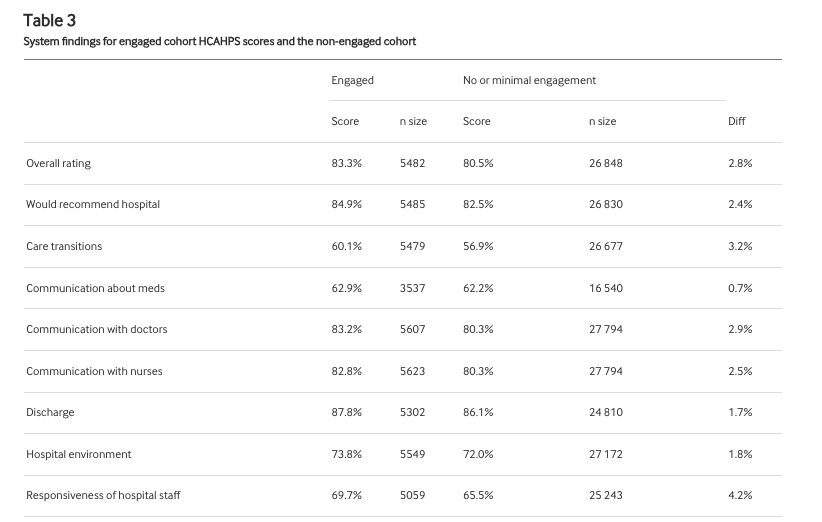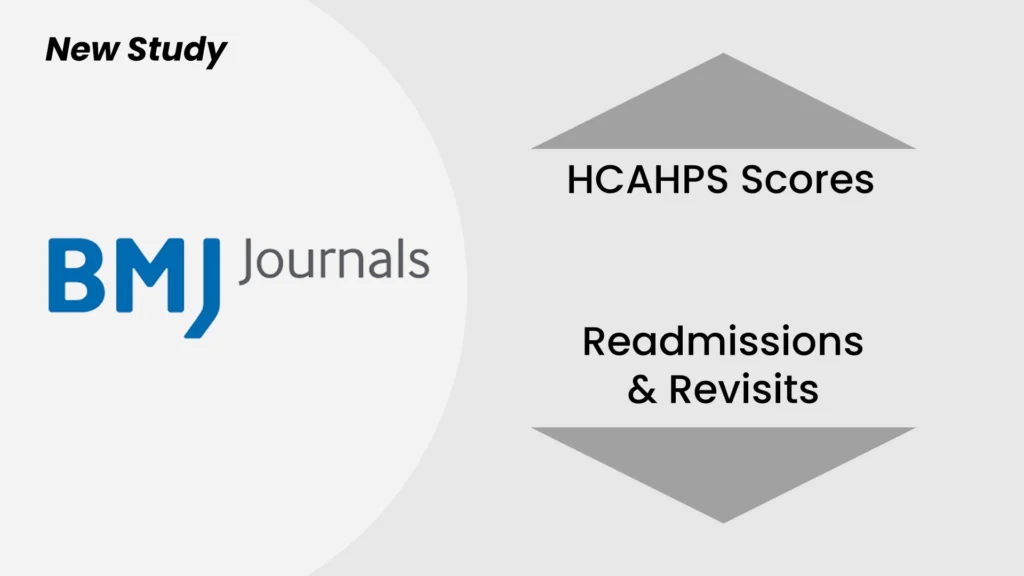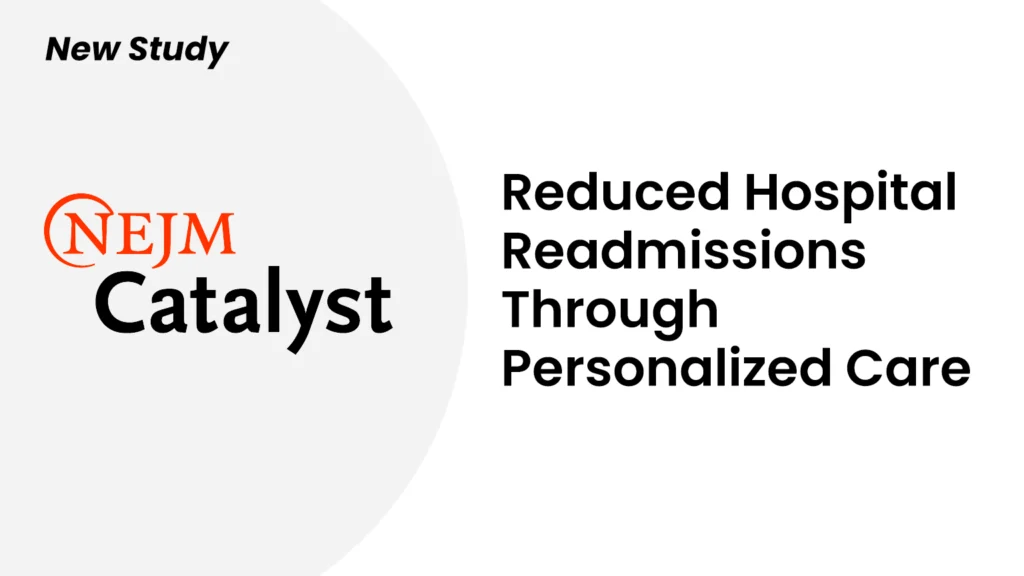Research consistently demonstrates that patient engagement is vital for enhancing healthcare outcomes. A recent, notable example of this is the bold initiative launched by Houston Methodist, a prominent health system in Texas, which implemented a post-discharge texting pilot program that significantly reduced the use of acute care resources and improved the patient experience.
The results are truly impressive—kudos to our customer, Houston Methodist, for conducting such an outstanding study – featured in the British Medical Journal! We’re proud to partner with such an innovator in this space.
About the Study
Many organizations consider discharge to be one of the most challenging aspects of patient care. The discharge process for highly acute patients in particular is inherently complex, resulting in a lack of standardization among hospitals and a scarcity of established best practices across institutions – especially around discharge follow-up.
Houston Methodist, which encompasses an academic hospital and six community hospitals, saw an opportunity to build on the few post-discharge texting studies and patient engagement literature that exists today. Through this recent study, the organization aimed to:
- Examine the association between patient engagement with a bidirectional, semi-automated post-discharge texting program and Hospital Consumer Assessment of Healthcare Providers and Systems (HCAHPS) survey outcomes, readmissions and revisit rates; and
- Describe operational and clinical flow considerations for implementing a post-discharge texting program.
To conduct the study, the health system leveraged Artera’s patient texting technology to extend care beyond the hospital walls, effectively engaging patients after discharge. This is the first study examining the association of a fully synchronous texting program with the following outcomes: patient experiences, readmissions and revisits.
Study Results
Between December 2022 to May 2023, the pilot program revealed impressive results. Of the 78,883 patients who were contacted throughout the program, 62.4% responded, with 50% of them replying with three or more incoming text messages (considered engaged with the texting program). The engaged cohort was compared to a non-engaged cohort (responded to 0-2 incoming text messages) within the study.
Patients Engaged via Conversational Text Experienced Reductions in Readmissions and Revisits
Based on the findings, the engaged cohort used significantly fewer 30-day acute care resources in all hospitals, as there were 29% fewer readmissions and 20% fewer revisits. Lower rates of revisits and readmissions not only reflect improved patient health but also lead to substantial reductions in healthcare costs. Additionally, patients considered actively engaged were 27% less likely to be readmitted, emphasizing the effectiveness of patient texting post-discharge.
“The engaged cohort used significantly fewer 30-day acute care resources, experiencing 29% fewer overall readmissions and 20% fewer revisit rates and were 27% less likely to be readmitted.”

Patients Engaged via Text Scored Higher on Key HCAHPS Metrics
In addition to the above, the study examined Hospital Consumer Assessment of Healthcare Providers and Systems (HCAHPS) scores, which provide a standard measure of patients’ perspectives about hospital care. Based on the study’s findings, every domain in HCAHPS were higher for patients who were engaged with the texting program when compared with the non-engaged cohort. Six out of nine HCAHPS domains were 2 or more points higher across the system for the engaged group. Higher HCAHPS scores indicate better patient experiences, demonstrating how the patient texting program tangibly improved the overall experience.

Conversational Messaging is Critical to Driving Patient Outcomes and Staff Efficiency
Although some studies have examined post-discharge texting, the factors influencing engagement remain unclear. This study by Houston Methodist is unique in analyzing the relationship between patient engagement with a bidirectional SMS texting program after discharge, focusing on outcomes like patient experience, readmissions, and revisits.
Using conversational messaging, the program allowed patients to communicate with post-discharge care managers about any questions or concerns, such as “Can I take Benadryl or Ibuprofen with this prescription drug?” The team then established a closed-loop feedback system to ensure timely responses, with care managers replying via text and offering phone conversations when necessary.
“This closing-of-the-loop, as basic as it may seem, likely contributes to patients’ overall impression of the care experience as evidenced by the biggest difference being in the responsiveness of hospital staff domain of HCAHPS for engaged patients.”
Additionally, conversational messaging improved outcomes for “sicker” patients, as the engaged cohort had higher CMI than the non-engaged cohort but was less likely to be readmitted and had fewer revisit rates.
The program also demonstrated that a small team of 10 end users effectively managed patient interactions for all seven large hospitals. According to the nurse care managers, they “estimate that over half of their text messages took less than 5 min to fully answer and address patients’ one or two questions.”
Houston Methodist: A Leader in Academic Research
In addition to the findings above, Houston Methodist deployed a rigorous implementation plan that focused on optimized response time and quality of care coordination – both significant factors that surely played a role in the success of the program.
The organization’s use of conversational messaging showcases the critical role digital tools can play in patient engagement, post-discharge care and hospital spend. As healthcare providers continue to grapple with providing patient-centric care, the positive results of such a post-discharge texting pilot illustrate that innovative solutions can, indeed, make a significant impact on both patients and providers. We’re honored to work with our customers like Houston Methodist who are making such a substantial contribution to academic research that can benefit the whole healthcare system.
Read the full study here.



